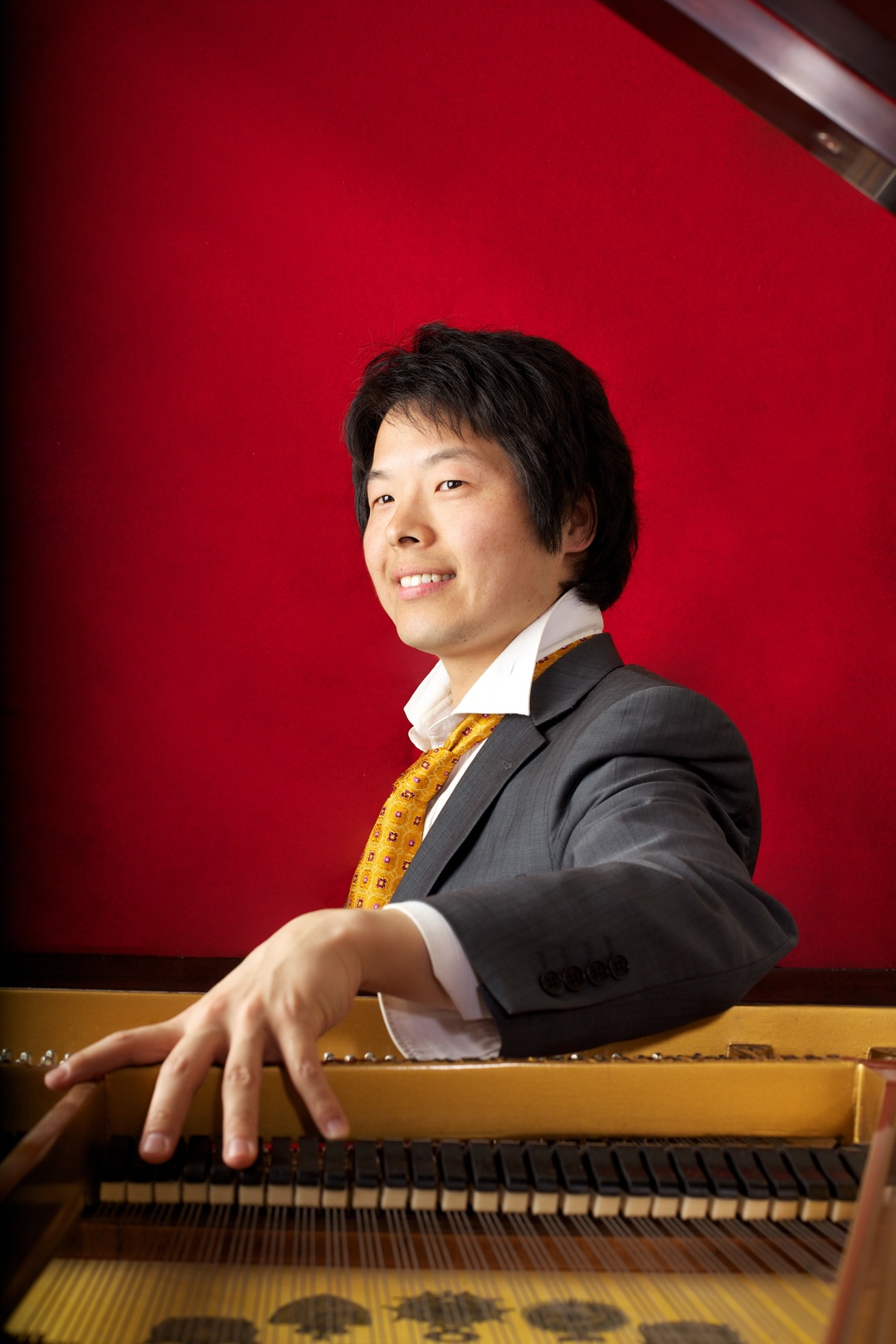
Virtuoso pianists who perform their own works are part of a time-honored tradition, and in this bicentennial year of Liszt (not long after anniversaries of Schumann and Chopin) we are reminded of this fact. Among the new generation in this category, Quentin Kim (b. 1976) is undoubtedly among the standouts. A recital of works by Beethoven, Schumann, and Mr. Kim himself was a memorable and inspiring occasion. In reading Mr. Kim’s program notes, I was struck by his boldness in describing his own musical views in such a way that many colleagues might easily be offended. Starting with a quote by Joseph Cardinal Ratzinger, currently Pope Benedict XVI, describing “modern so-called ‘classical’ music” as becoming “an elitist ghetto”, Mr. Kim ended his notes with a paean to “beautiful forms, beautiful sounds, beautiful colours” as a connection to Alfred Douglas’ “Supreme Beauty”. One needn’t agree with Mr. Kim’s philosophy to sense how he expresses in words a passion that translates into communicative compositions and committed performances of all that he plays. Whether or not one can embrace the 19th century-inspired tonal and stylistic aesthetic that permeates Mr. Kim’s own Sonata in G-sharp Minor—which bears strong kinship to Schumann—his sincerity is palpable. Amid the obfuscation one often finds in descriptions of new works (and sometimes in the works themselves), Mr. Kim’s writing, like his playing, is refreshingly direct. The listener was invited into the music every step of the way.
Along with elements of Schumann (inevitable, perhaps, for a pianist who has been so immersed in that composer), Mr. Kim’s Sonata showed hints of Scriabin, underscored by some colorful titles of movements such as “Resigning Sun” and “Shooting Star.” One expects that a thoughtful musician such as Mr. Kim will be led by his own words and excellent imagination into an even wider harmonic and textural range over time.
If it can be said that Mr. Kim composes like a pianist, it is certain that he performs like a composer—one with unusually fine pianistic gifts. His complete grasp of the inner workings made the opening half, Schumann’s Sonata, Op. 11 in F-sharp minor, a marvel of shape, phrasing, and articulation, each harmonic nuance being expressed as if he himself had composed the work. Matching the intellectual, emotional, and digital range was a stunning conception of sound, especially in the slow movement, but also evident in the fourth. If the Aria had had a tone any headier or more sensuous, it would need to be treated as a controlled substance. Strangely this work has never been one of my favorites of Schumann’s, but I’ll need to rethink it. In this performance, it sounded completely new, modern in the best sense of the word, as if freshly created.
Closing the program was Beethoven’s Sonata Op. 57, in F minor (“Appassionata”). It was an excellent performance as well, though I’m perhaps partial to greater abandon in it and a bit more fullness of sound at times. After the rest of the demanding program, however, it was a feat for Mr. Kim to convey so much power.
The audience expressed their thanks and awe with an enthusiastic ovation, and was rewarded with a quiet encore of Bach’s beautiful Largo (Arioso) from BWV 1056. I will definitely look forward to hearing Mr. Kim again in both his compositions and performances.
